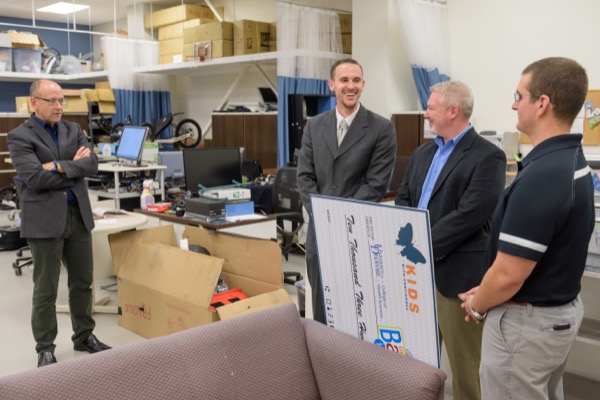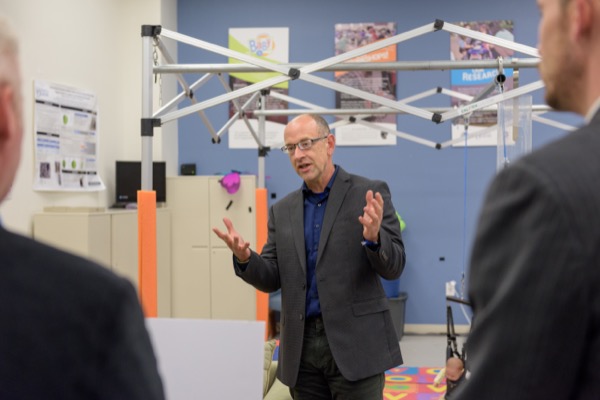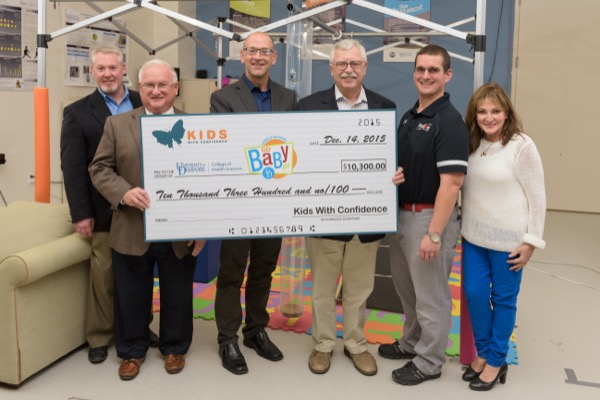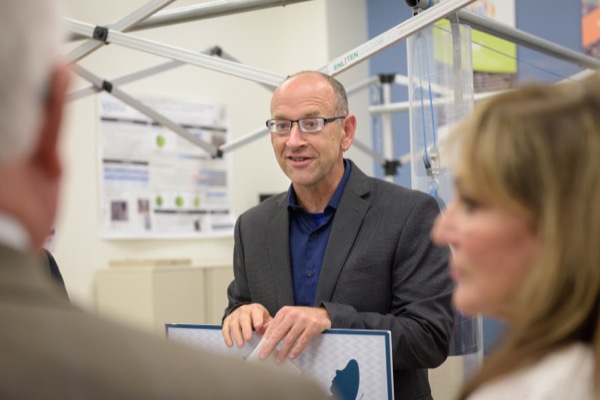

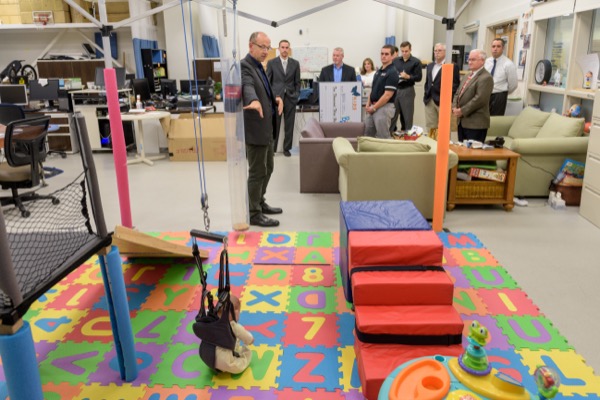
The gift of mobility
Kids with Confidence enables in-home research for children with mobility issues
9:08 a.m., Dec. 18, 2015--A donation from Kids with Confidence will give a local child the gift of mobility in 2016.
With the bright and energetic Pediatric Mobility Laboratory as a backdrop, the organization’s board members presented a literal “big check” to the University of Delaware’s Go Baby Go project, which uses technology, rehabilitation, engineering and even fashion to provide young people with real-world mobility.
Research Stories
Chronic wounds
Prof. Heck's legacy
With the mission of providing children with disabilities greater self-assurance, Kids with Confidence recognized an instant connection to the UD program led by Cole Galloway, professor of physical therapy in the College of Health Sciences.
“Our organization is totally focused on raising money to help kids,” explained founder and board member Xaiver DeCaire. “We looked at what Cole is doing and said, ‘This fits perfectly within our goals.’”
The funds go directly toward improving the life of a local child. Galloway will station a 10- by 10-foot pediatric mobility harness system, like the one in the UD Science, Technology and Advanced Research (STAR) Campus lab, into a local home.
Body weight support harness systems are common in clinics, but Galloway will infuse it into real-word environments. Flanked by GoPro cameras to capture the child’s development, the in-home harnesses will allow the baby to “co-create” a new world at home, providing a better understanding of how technology can improve the lives of those with mobility issues.
As Galloway explains, the family-researcher relationship in this project is a twist on the typical academic research study.
“For many studies, researchers and participants need to be detached in their relationship,” says Galloway. “In ours, we need to get to know the families in their real world environment. That’s how ideas and hypotheses for improvements are borne.”
So now that Kids with Confidence has made this in-home research possible, all that Go Baby Go needs is a family. The criteria include:
- Baby under nine months of age with Down syndrome;
- Family with adequate time to supervise daily play in the harness within their home; and
- Family willing to host researchers in their home.
Interested families can contact Galloway at jacgallo@udel.edu.
This research will ultimately provide information to improve the lives of children with many kinds of mobility and learning issues, but those with Down syndrome are the focus of this initial Go Baby Go research.
“We envision a day very soon when a child with Down syndrome will begin to walk within the first year of life,” Galloway says.
Future work will feature similar harness systems in multiple homes, as well as community spaces like schools and playgrounds. This harness system is the first of many across the country. With the University’s STAR Campus as the research hub, Go Baby Go chapters from Florida to Oregon will recruit families to participate.
The benefit to babies and children is clear, but the application of harness research doesn’t stop when the diapers come off.
Galloway has grand plans of harness-based communities of homes, restaurants, fitness clubs and work places of all kinds similar to the STAR Campus’ Go Baby Go Café.
“Think of the number of friends and family who go into nursing homes every day simply because they aren’t stable walking on their own,” says Galloway. “Now imagine if those folks had a harness system, even temporarily, in their own home. Not only could they could rehabilitate their balance and walking, but they would retain their independence, which is music to the ears of patients and caregivers everywhere.”
Article by Dante LaPenta
Photos by Evan Krape




